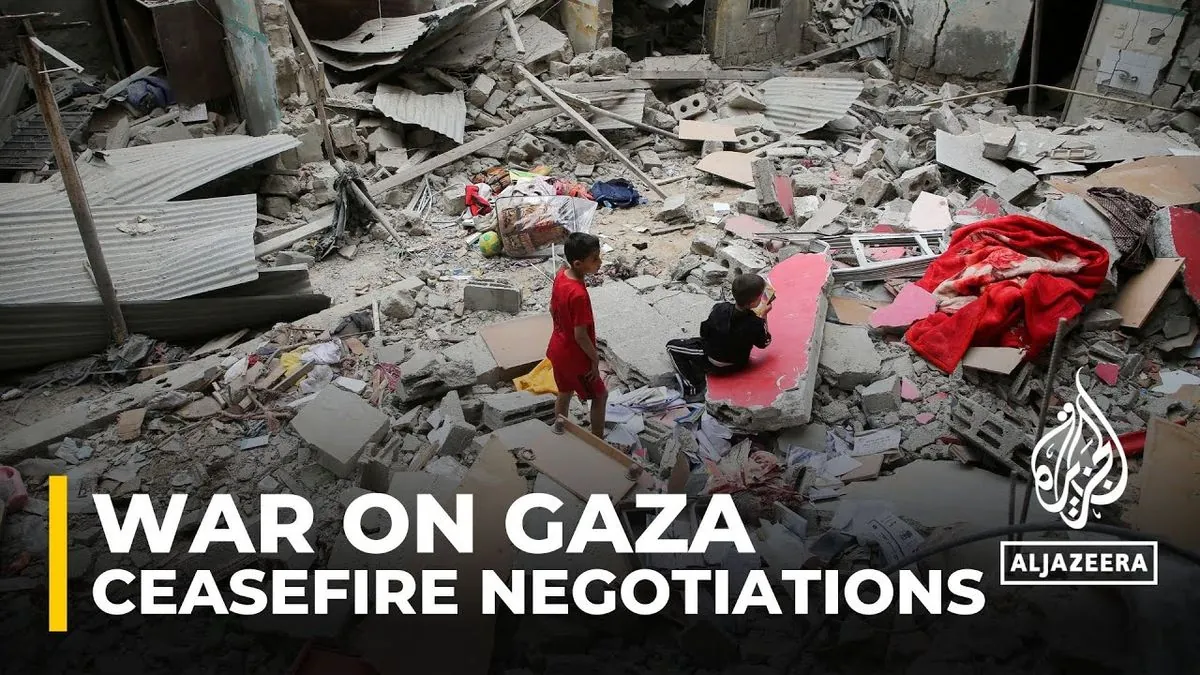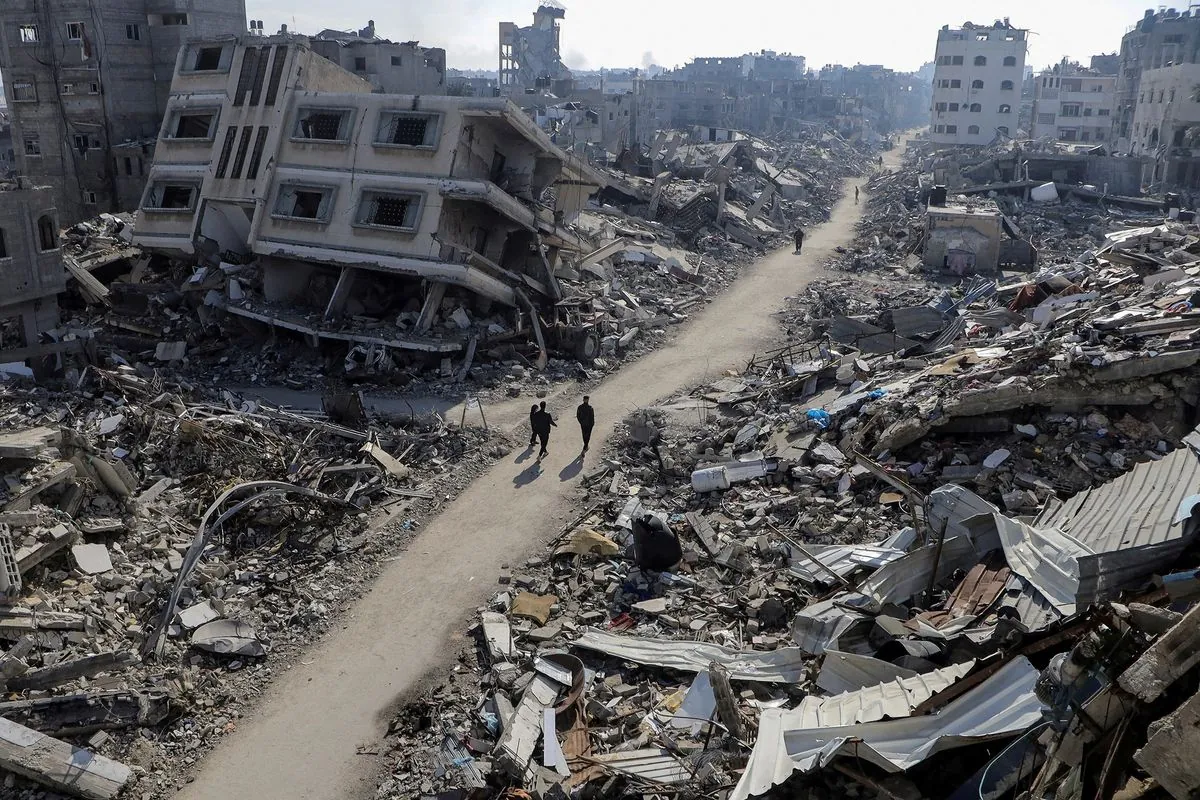Gaza Cease-Fire Talks Stall as U.S. Seeks Resolution Amid Political Pressures
Negotiations for a Gaza cease-fire have collapsed due to inflexible positions of Netanyahu and Hamas. The U.S. pushes for resolution, balancing domestic political concerns with international pressure for peace.

Recent negotiations in Cairo aimed at establishing a cease-fire in Gaza have failed, with both Benjamin Netanyahu and Hamas leadership refusing to compromise on key issues. An Arab official familiar with the ongoing talks stated that while technical teams are meeting in Doha, a cease-fire is not expected "anytime soon."
The conflict has resulted in over 40,000 Palestinian casualties, highlighting the urgent need for a resolution. The Gaza Strip, a mere 365 square kilometers in area, has one of the highest population densities globally, exacerbating the humanitarian crisis.
Netanyahu insists on maintaining Israeli military presence in Gaza, while Hamas refuses to release hostages. This standoff occurs against the backdrop of the upcoming U.S. presidential election in November 2024, with some experts suggesting that Netanyahu may be waiting for a potential Donald Trump victory to gain more freedom in handling the conflict.
The Biden administration is pushing for a compromise-based cease-fire, driven by heightened political sensitivities before the U.S. elections. A June 2024 Gallup poll revealed that more Americans disapprove of Israel's military actions in Gaza than approve, particularly among Democrats and independents.

In May 2024, President Biden proposed a three-phase plan for hostage release and cease-fire, but Netanyahu never fully endorsed it. This plan echoes past peace efforts like the Oslo Accords of 1993, which aimed to establish a two-state solution but ultimately failed to achieve lasting peace.
Internal disagreements within the Israeli establishment have emerged, with the defense establishment calling for more flexibility in negotiations. A former high-ranking army officer suggested that Netanyahu is prioritizing Hamas's defeat over hostage release to appease far-right allies.
The U.S. has been actively involved in mediation efforts, with Secretary of State Antony Blinken recently presenting a "bridging proposal" to address key sticking points. These include Netanyahu's demand to maintain Israeli soldiers in the Philadelphi Corridor, a 9-mile stretch along Gaza's southern border with Egypt, and the Netzarim Corridor, which divides Gaza into northern and southern zones.
Hamas, while holding out against a deal, has not received the level of support it expected from regional allies. The group has controlled Gaza since 2007, with the territory under a blockade by Israel and Egypt since then.
The conflict's impact on U.S. domestic politics is evident, particularly in swing states with significant Arab American populations. The Uncommitted National Movement, originating in Michigan, aims to pressure the Democratic Party to not only achieve a cease-fire but also halt weapon supplies to Israel.
As the November 2024 U.S. presidential election approaches, the Democratic Party faces the challenge of balancing support for Israel with addressing the concerns of voters sympathetic to the Palestinian cause. This delicate balance is crucial in key swing states and reflects the complex interplay between domestic politics and international diplomacy in resolving the Gaza conflict.


































